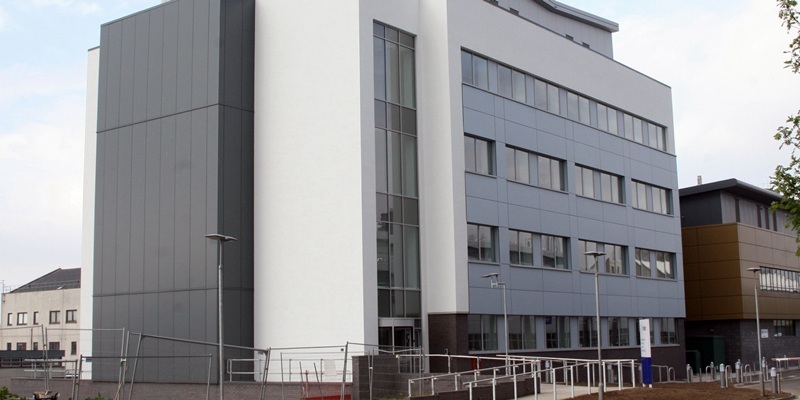A pioneering medical research project is to abandon its £11.6m Dundee University laboratory within the next few weeks.
The lab at Ninewells Hospital was officially opened less than two years ago by First Minister Alex Salmond and was supposed to eventually house 120 scientists.
It never came close to fulfilling that potential, and recently there have only been 28 university employees based there.The future of nine of those staff members remains unknown.
The lab was meant to be the hub of the translational medicine research collaboration (TMRC) involving Dundee, Aberdeen, Glasgow and Edinburgh universities, along with Tayside, Grampian, Lothian and Greater Glasgow health boards, Scottish Enterprise and US-based pharmaceutical company Pfizer.
The partners have decided they do not wish to continue with this core lab concept and would rather carry out research at their own institutions.
Their statement said, “The TMRC partners are currently reviewing and evaluating the structure of this collaboration to develop a more sustainable model of operation.”
The project was announced in 2006 with the promise of £50m funding for research into cancer, neuroscience, inflammation and other conditions, aimed at speeding up the development of drug treatments.
It was also meant to help adapt prescription drugs to individual needs so doctors could discover which groups of patients respond best to which medicines.PfizerMost of the money was meant to come from pharmaceutical firm Wyeth, which has since been taken over by Pfizer, but Scottish Enterprise pledged one-third of the total.
The lab was built in James Arrott Drive on the Ninewells site. The First Minister described it as a “valuable resource” in efforts to place the country at the forefront of translational medicine.
Its use by the TMRC was covered by a five-year contract, which ends next month. A spokesman said it was always intended to review the project at that point.
He added, “The TMRC partners agreed in August 2010 that it may be more appropriate for some of the laboratory research to be conducted within partner institutions rather than at a dedicated central laboratory and, as a consequence, the laboratory will not be needed for this particular collaboration after March 2011.
“Each TMRC partner remains absolutely committed to this ambitious collaboration and to continuing to enhance Scotland’s capabilities, capacity and reputation in translational medicine.”
The laboratory building is owned by Dundee University and will become part of its school of medicine from the end of next month. Some translational medicine research will still be carried out there, along with other work, particularly in the areas of cancer, diabetes and neuroscience.
A university spokesman said, “Of 28 staff employed by the university in the building, 11 have now been redeployed to other areas, seven have moved on to alternative employment and one has retired.
“We are continuing to work with the remaining nine staff to identify opportunities for redeployment.”
